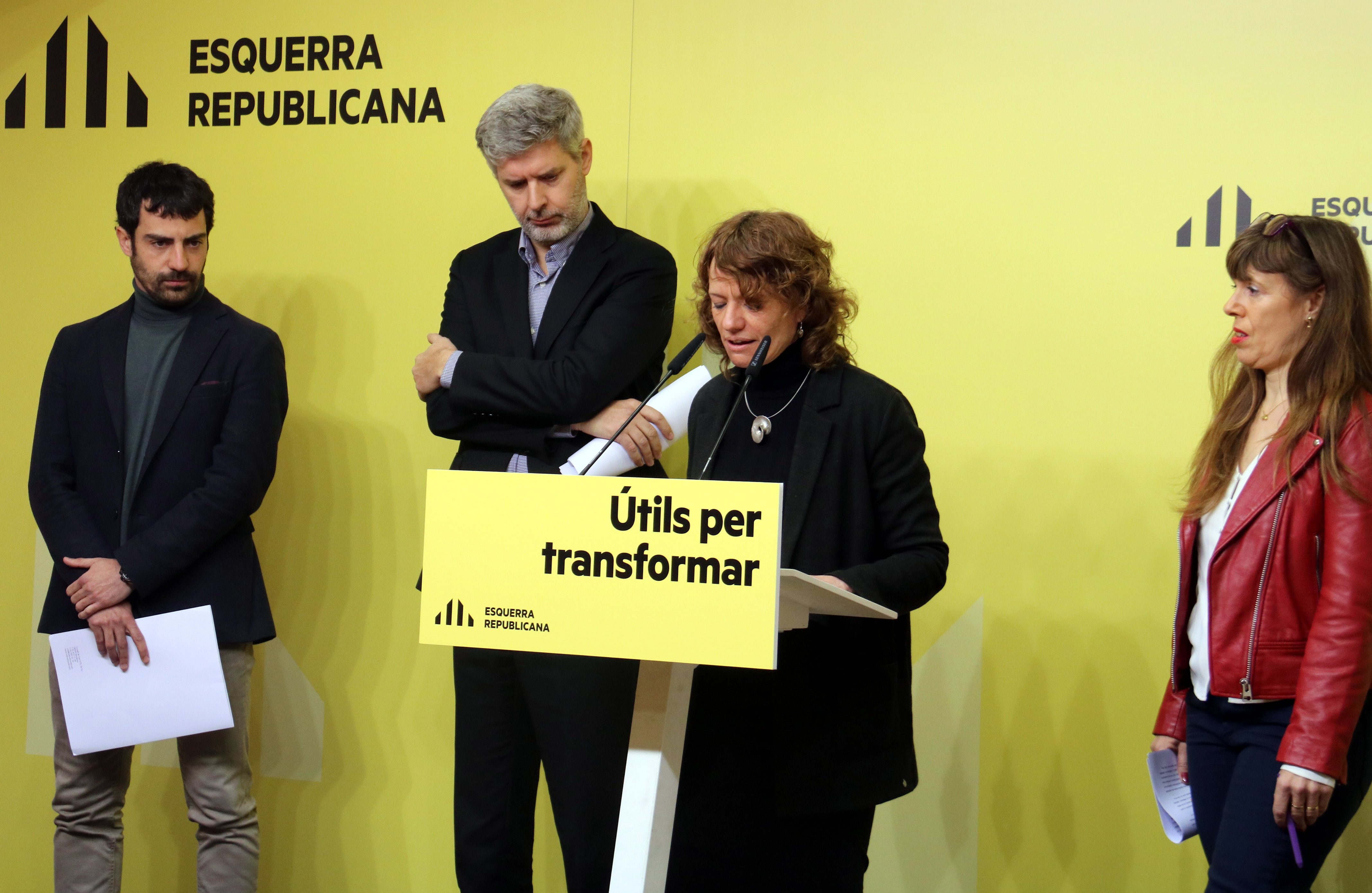"It's a coup d'état by the Spanish judiciary." That is how the pro-independence Catalan Republican Left (ERC) party has categorised the interpretation made by Supreme Court judge Pablo Llarena of the recent Penal Code reform, which ERC itself agreed with the Spanish governing parties, the PSOE and Unidas Podemos. Marta Vilaret, ERC's deputy general secretary for rights gave this assessment in a press conference this Wednesday, appearing with the lawyers of the ERC leaders convicted over the 2017 independence referendum, at almost the same time as Spain's chief public prosecutor published an order to interpret the new misuse of funds crimes created by the reform in a unified way. In this order, the chief prosecutor opts for the harshest possible interpretation, since he maintains that the accusation of aggravated misuse of funds can be maintained even when personal enrichment does not occur, as indeed it did not in the case of the pro-independence leaders with regard to the 1st October referendum. The lawyer Andreu van den Eynde affirmed that the judges have "twisted the law and the spirit of the reform", although he added that if the Supreme Court maintains this position, it gives his clients "weapons" to present to European justice and the international community.
Van den Eynde and Olga Arderiu, lawyers of the former Catalan vice-president and leader of ERC, Oriol Junqueras, former government ministers Raül Romeva and Dolors Bassa and the former speaker of the Catalan Parliament, Carme Forcadell, appeared this Wednesday at a press conference to explain that they have called on the court, presided over by Manuel Marchena, to revoke the conviction of the four ERC politicians in its response to the application of the reform of the Penal Code. After the press conference, the Supreme Court prosecutors announced that they are asking the court to maintain the same sentence for those convicted of the crime of sedition and misuse of funds, considering that the new crime of aggravated public disorder can replace the crime of sedition. The penalties, however, are not comparable, as the new disorder offence has penalties of up to 5 years in prison.
A race for control
Previously, Van den Eynde said he was not surprised that the prosecutors had decided to maintain this position, less favourable to the leaders of the independence process. Asked if the reform of the Penal Code has been rushed, as some experts believe, the lawyer stated: "The legislator cannot start a race for control of the judges, while the judges have not understood who writes the laws."
Van de Eynde also reiterated that the reformed misuse of funds offence "cannot be applied" to the Catalan government spending attributed to the 1st October consultation, despite the fact, that if such spending took place, it would constitute disloyal administration of funds. That is, he says, it would constitute the attenuated version of the misuse of funds crime. "At the European Court of Human Rights or at the United Nations, this feedback we are receiving shows how the judiciary is twisting the law," said the lawyer, adding that this would give protection to the exiled politicians and would "give us weapons to take to Strasbourg."
For her part, Arderiu affirmed that the crime of sedition cannot be replaced by that of public disorder, as the prosecutors are now arguing, since "the accusatory principle is violated". She explained that in the proven facts of the sentence of the independence leaders' trial, which cannot be modified in the sentence review, "no acts of violence are detailed" which would fit with the new crime of public disorder. In addition, she added that this new crime - and the actions that define it - did not take place and, therefore, cannot be applied, as jurists such as Joaquín Urias have argued.

